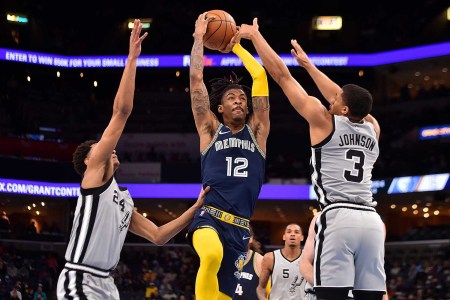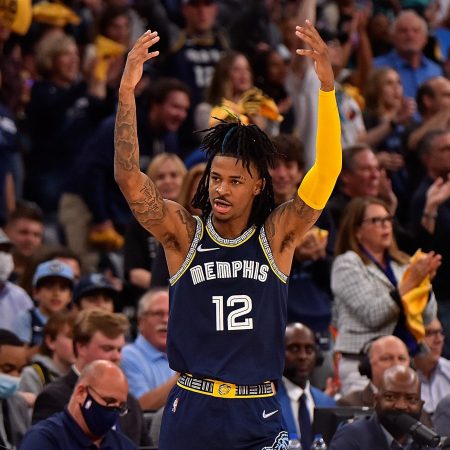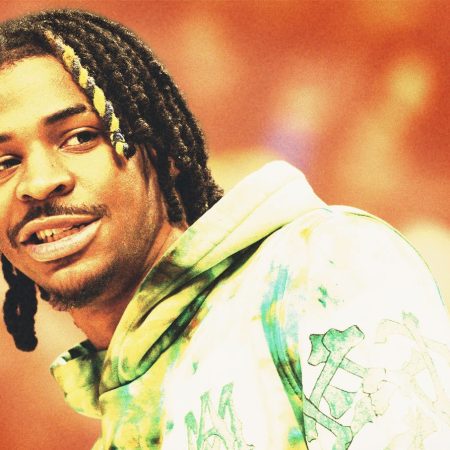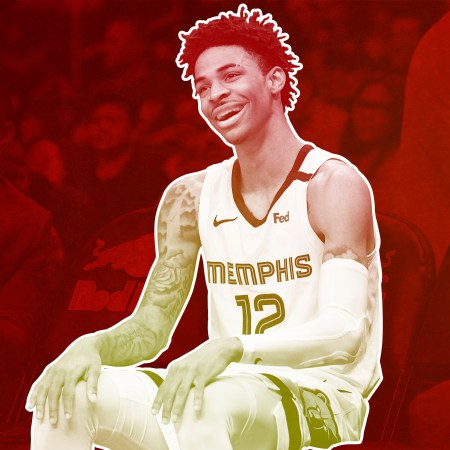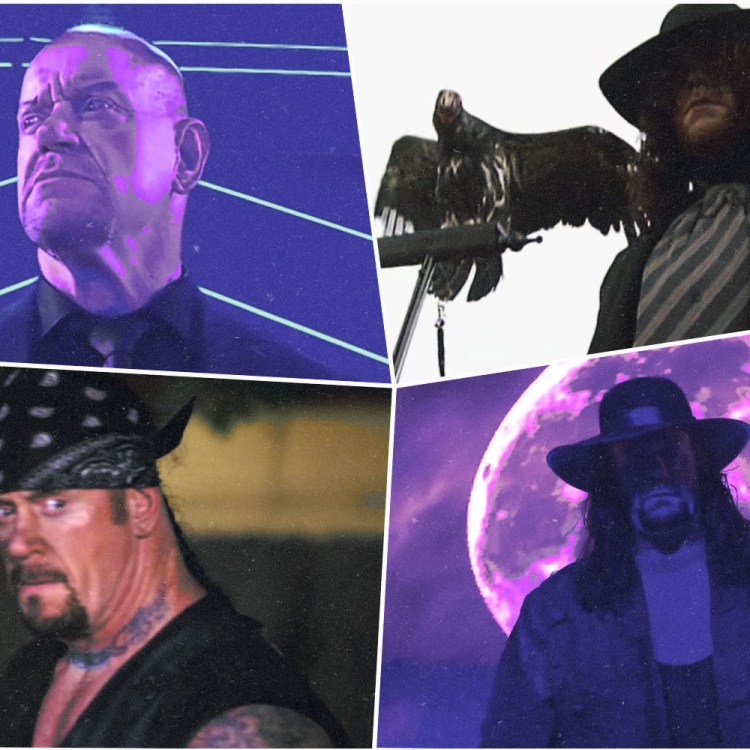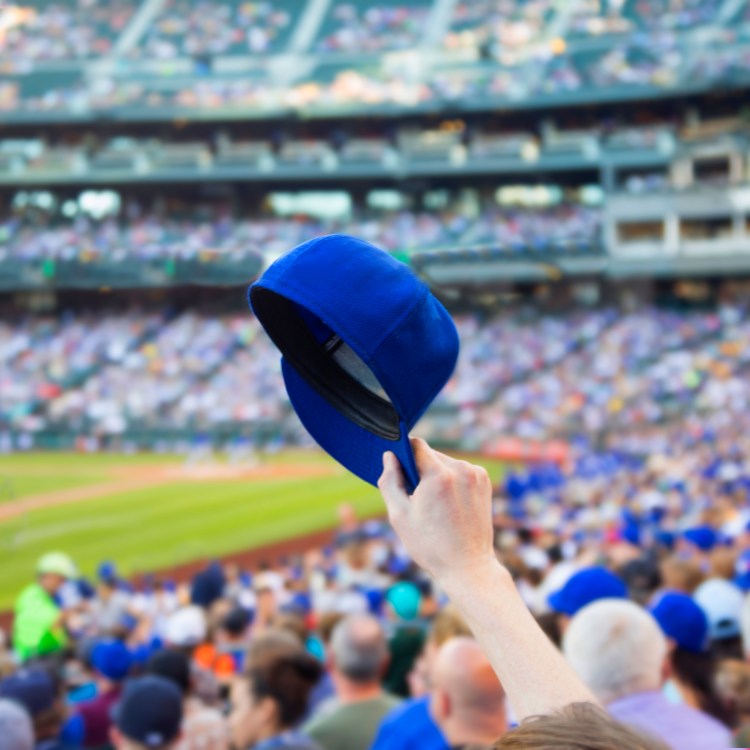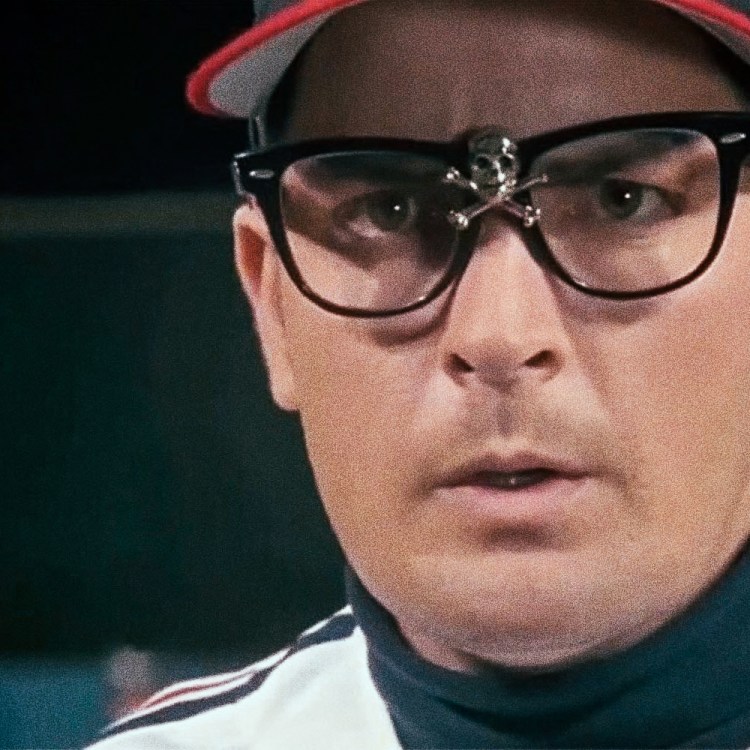Ja Morant could be one of the 10 best basketball players in the NBA right now. The Memphis Grizzlies star point guard, who was drafted second overall in 2019, signed a contract last year that could be worth more than $200 million. And the 23-year-old definitely fixed his signature to endorsement deals with Powerade, BodyArmor and Nike that are also likely worth north of $100 million in total.
But taking into account a number of unsettling events across the past few months, Morant also appears to really need help. Fortunately, he’s just become the latest high-profile athlete to seek mental health counseling.
Ja Morant’s Buzzer-Beater Is Now the NBA’s Most-Watched Instagram Video
Monday’s Spurs-Grizzlies game generated record-breaking social media numbersAccording to ESPN, Morant has stepped away from his basketball duties “to get help and work on learning better methods of dealing with stress and my overall well-being,” he said in a statement. He added: “I’m sorry to my family, teammates, coaches, fans, partners, the city of Memphis and the entire organization for letting you down.”
Morant’s accountability and proactive steps to address his behavioral problems are not a let down. Grizzlies teammates and Nike have thrown their support behind him in public statements of their own.
But the real let downs came fast and furious, starting on January 29 when, after a game against the Indiana Pacers, someone in a slow-moving SUV that Morant was riding in reportedly directed a red laser at Pacers players. Many in the group, who moments earlier had been confronted in person by Morant, feared the laser was attached to a gun. Then, on March 1, The Washington Post reported that Morant assaulted and threatened a 17-year-old boy with a gun after playing a pick-up basketball game with the youth at Morant’s home last summer. The Post also said that last summer Morant threatened a mall security guard after Morant’s mother got into a dispute with a store employee. Finally, 10 days ago, Morant appeared to flash a gun on a social media livestream from inside a nightclub.
After the fallout from that last incident, Morant apologized and said he took “full responsibility” for his actions. He seems to have proven as much by leaving his team, while in the middle of an NBA playoff push, to address his mental health issues — which puts him in some pretty good company, actually. Naomi Osaka and Simone Biles are just two superstar athletes to recently exit high-stakes competitions out of concerns for their emotional and psychological well being.
“These instances of high-profile athletes prioritizing their mental health, along with organized efforts from the sports industry, have triggered an important shift in the narrative of mental health in sports,” wrote Harvard Business Review of Osaka and Biles in 2021. “They’ve increased awareness of the numerous career dynamics that pose mental health risks to athletes: unsustainable expectations for perfection and constant improvement, enormous public pressure to win, pervasive demand to outwork or outlast an opponent, and relatively short career spans that can end in the blink of an eye due to injury.”
The list of athletes who’ve openly discussed their mental health problems has only grown lengthier since then. It includes Michael Phelps, Serena Williams, Ronda Rousey and Abby Wambach, all of whom are champions at the highest levels of their respective sports. The NBA alone has seen the likes of Kevin Love, DeMar DeRozan and Kevin Durant talk publicly about their individual mental health concerns. None of them, nor Morant, may have been willing to speak so openly if it wasn’t for Metta Sandiford-Artest, the retired NBA player formerly known as Ron Artest, before he first changed his name to Metta World Peace.
Sandiford-Artest’s biggest claim to fame is his involvement in an epic brawl between NBA players and fans that’s been dubbed “The Malice at the Palace.” After engaging in a shoving match on the floor with a Detroit Pistons player, as a member of the visiting Indiana Pacers, Sandiford-Artest laid down on a scorer’s table. But when a Pistons fan threw a beverage at him, Sandiford-Artest entered the Palace arena’s stands to confront the culprit. A fight broke out and you probably know many more of the conflict’s upsetting details.
But what far fewer people remember Sandiford-Artest for was his mental health 180. (It actually has only a short paragraph devoted to it on his Wikipedia page, even though he’s been a mental health advocate for more than a decade.) He dealt with anger issues, anxiety and depression, as well as symptoms from bipolar disorder, by seeing a therapist and taking medication. He also refocused his energy away from basketball.
“Let’s just say you’re playing extremely well, but you’re not emotionally there,” Sandiford-Artest told ESPN in 2021. “To find balance, you got to go in the opposite direction sometimes, which will pull you from your greatness. But for me, I had to take a couple of steps back from giving my all to the game. I had to give a little bit to me personally.”
Sandiford-Artest wrote a book about his mental health journey, and Showtime produced a documentary devoted to his story as well. Still, as he told ESPN two years ago, people “always” seem to first associate Sandiford-Artest with running into the Palace stands looking to knock someone out.
Hopefully in a few years’ time — or perhaps even sooner — we’ll go back to thinking about unbelievable dunks when we hear the name “Ja Morant.” Even better, maybe we’ll first consider his mental health turnaround.
Thanks for reading InsideHook. Sign up for our daily newsletter and be in the know.

